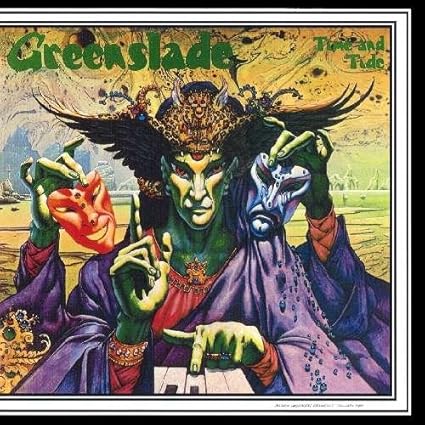Time & Tide by Greenslade, 1975
Whenever I want to defend prog rock against the silly consensus that punk was the true revelation of the 70s, this album gives me pause. Amid the sub-Genesis pomposity, including the faux-Edwardian nostalgia, any good musical sections are quickly interrupted by Dave Lawson's horrible yelping vocals, in which every word of his terrible lyrics is cringingly audible. Even at the age of 10, when my brother brought this newly released album home, I thought the lyrics to Animal Farm and Newsworth especially were a bit naff, even though everything my cool elder brother brought home was itself ipso facto cool.

Of course Lawson's vocals are the worst thing about this album, but the whole thing has an air of out-takes and half-baked concepts. Disparate musical ideas are shuffled about with no coherence at all, creating an impression of a band recycling discarded tunes while waiting in vain for some real inspiration to come along. For sure the tracks are shorter and less self-indulgent than on earlier work, but there's nothing to suggest any vision of where the band was to go. And the short answer to that implied question is 'nowhere', since they broke up a few months after the album's release.
I bought the first Stranglers album in 1977 and didn't listen to this again for over 30 years. Revisiting it in 2014, every note is familiar and the tweeness is just as bad as it was then. The jazz-rock fusion of Colosseum is gone and we are left with a band - and indeed a whole musical genre - that had no idea where it was going. Maybe that most over-rated of all bands, The Ramones, were on to something after all.



